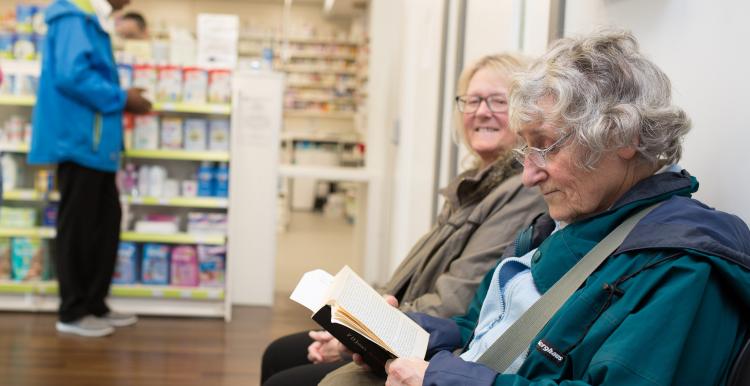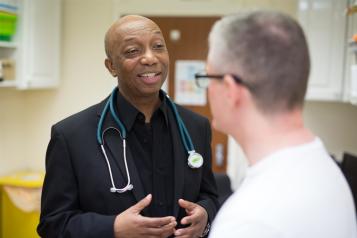Healthwatch England publishes research on people's views of local pharmacy services

Healthwatch England coordinated a nationally representative poll of 1,650 adults in November 2023. Interviews were undertaken by local Healthwatch, including Healthwatch Haringey. Each Healthwatch interviewed two pharmacy users and a pharmacy member of staff.
Community pharmacies are very widely used and people value their accessibility, both in terms of the ease of getting to one and the speed of being seen once there.
People across the country also talked about the challenges they face including supply shortages on some medicines, pharmacy closures, and rising prices which prevent people from getting an NHS prescription or over-the-counter medication because they can't afford it.
In this part of Haringey there is a lot of deprivation, what will people locally do? It has never been so bad; people struggle with £9.65 per item…This is for people who work.
Key findings
- Community pharmacies are very widely used, with 72% of people having used one in the past three months.
- Online pharmacies are much less used, with 18% using one in the past three months. 54% of people who have used an online pharmacy at some point said they would be likely to do so again.
- People value the accessibility of community pharmacies, both in terms of the ease of getting to one and the speed of being seen once there.
- There are positive signs for the success of Pharmacy First. People were already open to the idea of going to a pharmacy rather than a GP for the seven conditions before the service was launched and are open to the idea of seeing a pharmacist rather than a GP more generally.
- Pharmacy First faces some challenges. A small proportion of the population is less open to going to a pharmacy rather than a GP. This is due to their personal preference, while in some cases, due to a lack of awareness of the services pharmacies offer.
- More broadly, medicines shortages continue to affect patients. Almost one in four, 24%, have experienced shortages when trying to get medicine, and 42% have experienced problems getting medicine in general. This has led to patients having to play ‘pharmacy bingo’, going from one pharmacy to another to find the medication they need.
- Closures are affecting patients access to pharmacy services. As well as pharmacies permanently closing, temporary closures are causing frustration. There is currently little transparency on temporary closures, nor information given to local residents when temporary closures occur.
- Although 90% of prescriptions in England are dispensed free of charge, the cost-of-living crisis impacts pharmacy usage, with five per cent of people saying they have avoided taking up one or more NHS prescriptions because of the price.
Recommendations at a glance
The successful rollout of Pharmacy First will rely on addressing existing challenges facing pharmacy teams. It will also be important that patients know about the scheme, can access their local pharmacy, and are confident in the support local pharmacies can offer.
Healthwatch England recommendations include:
- Targeted communications to raise awareness of the Pharmacy First scheme, building on existing campaign launched by NHS England in February
- Cost of living barriers to be addressed, including improvements to prescription prepayment certificates (PPCs).
- Government to review medication shortages and take action to keep people informed.
- Better communication of pharmacy closures and transparency on temporary closures.
- People with experience using pharmacy services to be involved in the national evaluation of Pharmacy First, including decision-making.
- More support to pharmacy teams, including improved IT systems, more funding, action on workforce shortages, and support with pharmacy premises.
Read the Full Report - Pharmacy: what people want


